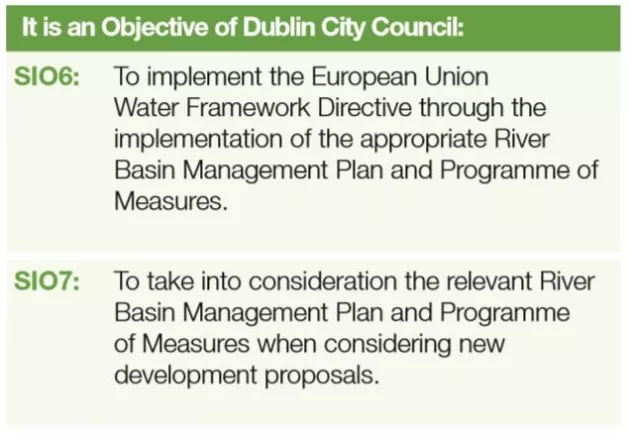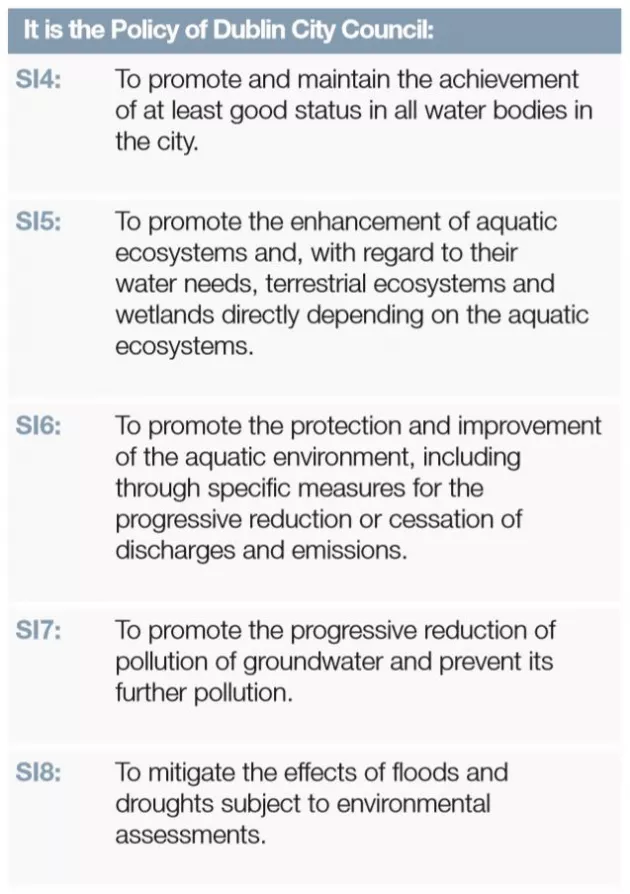9.5.2 Natural Watercourses & Water Quality
9.5.2 Natural Watercourses & Water Quality
The European Union Water Framework Directive 2000 (WFD) aims to provide a strengthened system for the protection and improvement of water courses and water-dependent ecosystems throughout the member states. The directive is being implemented across Europe and commits all member states to the dual key objectives of preventing deterioration and achieving at least good status in our rivers, lakes, estuaries, coastal and ground waters by the year 2015.
The purpose of the directive is to establish a framework for the protection of inland surface waters, transitional waters, coastal waters and groundwaters which:
a) prevents deterioration and protects and enhances the status of aquatic and terrestrial ecosystems
b) promotes sustainable water use based on a long-term protection of water resources
c) aims at enhanced protection and improvement of the aquatic environment
d) ensures the progressive reduction of pollution of groundwater, and
e) contributes to mitigating the effects of floods and droughts.
Both surface waters and groundwaters that support protected areas (e.g. bathing waters, nutrient-sensitive areas, protected habitats and species) must enable these protected areas to achieve their stricter status standards.
The River Basin Management Plan and Programme of Measures sets out the objectives for our waters and proposes the actions that are needed to achieve these objectives.
The Environmental Objectives (Surface Water Regulations), which came into effect on 30 July 2009, have significant implications across a range of existing legislation and they address the requirements of the Water Framework, Dangerous Substances and Priority Substances directives.
The Water Framework Directive is complemented by Directive (2006/118/EC) on the protection of groundwater against pollution and deterioration, and Directive (2008/105/EC) on environmental quality standards in the field of water policy. The status of the rivers of Dublin (Liffey, Camac, Tolka, Dodder and Santry) are all affected by being located at the downstream end of their catchments, and the main pressures are generally upstream pollution, combined sewer overflows, misconnections of wastewater and urban run-off.
All of the transitional waters including estuaries and marshes in the Eastern District are of moderate status including these in Dublin Bay. The Ringsend wastewater treatment works impacts on these waters. The EPA has designated the coastal waters of Dublin Bay with ‘moderate’ status.
Groundwater in and around Dublin city’s administrative area has been deemed to have ‘good’ status as per the Water Framework Directive. Maintaining this status will require guarding against contamination and abstraction.

